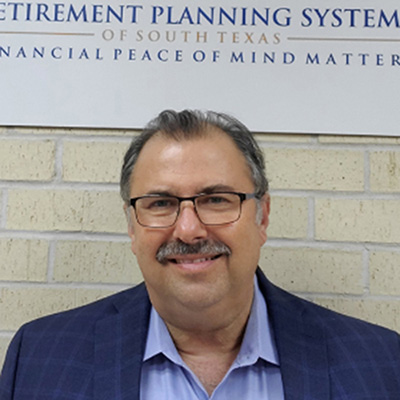
Article Library

Charles Cardenas
RPS Retirement Planning Systems of South Texas
212 W 3rd St
Weslaco, Texas 78596
charles@rpsstx.com
(956) 463-6862
Financial Literacy in Underserved Communities
Financial knowledge and resources are crucial for economic stability and growth. However, in the United States, there are significant gaps in access to wealth-building tools and financial literacy, particularly among Black and Hispanic communities. This gap contributes to the persistent wealth disparity, making financial education more essential than ever.
Understanding the Wealth Gap
The wealth gap refers to the significant difference in financial resources and economic mobility among different racial and ethnic groups. This disparity affects various aspects of life, including housing, education, employment, healthcare, retirement, and entrepreneurship. For underserved communities, the wealth gap translates to fewer opportunities for wealth accumulation and economic advancement.
Closing the wealth gap is not about competition among different societal segments but about achieving equity and sustainable equality. By ensuring everyone has access to the same opportunities, we may work towards a more inclusive and fair society.
Financial literacy is a key component in bridging this gap. It empowers individuals to navigate economic systems, leverage wealth-building opportunities, and make informed financial decisions. Enhanced financial knowledge may lead to greater economic inclusion and improved quality of life for all Americans.
The Reality of Economic Disparity
Recent research highlights the significant economic disparities that persist in the United States. Wealth inequality is more pronounced than income inequality, driven by differences in homeownership, stock investments, and other wealth-accumulating assets. Key findings include:
- Retirement Savings: Projections indicate that the retirement savings gap could expand to a $1.3 trillion economic burden by 2040. This issue is particularly acute among African American and Latino communities, who often lack access to workplace retirement plans, resulting in lower savings and greater financial insecurity in retirement.
- Homeownership: As of 2020, 72% of white households owned homes compared to only 43% of Black households. Homeownership is a critical component of generational wealth, and increasing access to this wealth-building asset is essential for narrowing the wealth gap.
- Education and Income Levels: While educational attainment and income levels influence homeownership rates, disparities persist even among higher-income and more educated groups. Black and Hispanic college graduates are less likely to own homes compared to their peers from other racial groups, and the student loan crisis exacerbates this issue by adding significant debt burdens.
- Stock Market Investment: Stock market investments may significantly enhance household wealth, but racial disparities are evident. Nearly two-thirds of white families own stocks, compared to much lower percentages among Black and Hispanic families, contributing to ongoing wealth inequality.
- Entrepreneurship: Entrepreneurs of color face significant barriers, reflecting broader economic disparities. Despite an increase in Black-owned businesses in recent years, these firms account for only about 3% of all U.S. businesses and just 1% of gross revenue, despite Black Americans representing approximately 14% of the population.
The Value of Financial Education
Financial literacy is crucial for addressing wealth disparities. Educating individuals on financial principles, savings strategies, and investment options may dramatically improve long-term economic outcomes. By understanding how to manage money effectively, individuals in underserved communities may make informed decisions that enhance their financial stability and foster wealth accumulation.
How Organizations Might Help
Organizations committed to diversity, equity, and inclusion (DEI) play a crucial role in expanding financial literacy and narrowing the wealth gap. These organizations may advocate for policies that ensure greater access to financial services and promote financial education tailored to the needs of diverse communities.
For example, NFP is dedicated to reducing racial disparities and creating a more inclusive future. Their initiatives, in partnership with organizations like FARE, aim to increase racial diversity and drive equity within the financial services industry. Collaborations with Historically Black Colleges and Universities (HBCUs) and other organizations further these commitments.
Community-Based Strategies
Effective financial education should be community-oriented and inclusive, delivered through local organizations, schools, and community centers. Partnerships between financial institutions, nonprofits, and community groups may amplify the reach and impact of financial education programs, providing the resources and expertise needed for large-scale transformation.
Looking Ahead
Supporting the financial empowerment of underserved communities is essential for narrowing the wealth gap. By focusing on financial literacy and creating equitable opportunities for all, we may work towards a future where everyone has the chance to secure their financial future and achieve long-term economic resilience.
If you or someone you know is seeking guidance on improving financial literacy and building a secure financial future, contact a trusted financial advisor today. A knowledgeable advisor may provide personalized strategies and resources to help you navigate economic challenges and seize wealth-building opportunities.

Best Tips
For A Worry-Free
Retirement
The Safe Money Guide